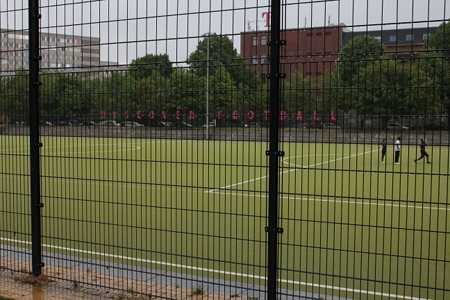
In an earlier randform post I tried to give some motivations on why one should see “competitions” more critical.
For the major aspects of a competition I identified – as mentioned in the post – the existence of a “measure scale” and the fact that a choice is made according to that measure scale. Note that with that identification a choice with an “undefinable measure scale” (like if there are too many sorting criteria with eventually uncomparable values) would rather not count as a “competition”. Maybe these cases should then rather be simply called “selections”. Psychological aspects like in particular motivation were also mentioned in the post.
It is important to mention two more aspects which appear in the context of a competition. These are the questions on “how much is at stake” and “to what extend are participants forced into a competition” . These two aspects are usually not independent.
how much is at stake?
If a you train half of your life for winning a running competition at the Olympic games than “a lot is at stake” at that one particular running competition where your perfomance decides wether you have reached that goal or not. If your company needs to “win” one particular contract in order to survive you would say “a lot is at stake”. If you eventually ruin your or others health by taking part in a contest than “a lot is at stake”. If you play a game of scrabble with your buddies than usually there is “not so much at stake”. That is in this case there won’t be any severe changes/losses taking place which are dependent on the outcome of the competition.
Moreover it is usually true that “the more there is at stake, the fiercer the competition”.
In the last randform competition post I wrote about the negative aspects of a too fierce competition. So in order to mitigate the danger of a too fierce competition it is important to assess that for all participants there is “not too much at stake.” Apart from private considerations this is important for the field of science, as well as for business and politics. In an earlier randform post it was in particular mentioned that a fierce competition in science where the selection criteria is wether “a certain result is achieved first” can be problematic. This specific “result-oriented competition” neglects other criteria such as e.g. how elegantly or clearly the investigations leading to a result had been presented, how much the involved methodologies and themes influence other areas, to what extend the involved research encompassed educational and public value, how high the costs were, how equal the working conditions were a.s.o. A fierce business competition may lead e.g. to exploitation, unethical/half criminal behaviour and negligence (see last randform competition post). In politics it may lead e.g. to unfairness.
Note that the reverse conclusion namely “the fiercer the competition, the more is at stake” is not necessarily true. Often psychological components may lead to a fierce competition, where this is wouldn’t be necessary. A sad example of such dynamics was the recent death at the finnish sauna world competition.
If the fierceness of a competition is due to such psychological components it is often easier to mitigate than if there is too much at stake. Here independent observers and helpers can be of great use, moreover in some cases an interference of independent observers should be seen as a duty (like e.g. for the case of the Sauna death). In science this could be for example done by something like an “Ombudsman.”
If there is “too much at stake” then interference is often difficult. Thus one should try to avoid such competitions or -like in sports- impose strong regulations and control.
To what extend are people forced into a competition?
If you choose voluntarily to take part in a competition than you have a “navigation space”, i.e. you can decide for yourself of how “far you would go”, how much you want to invest in the competition etc. If the participaton at a competition is not fully voluntary then things may get nasty, since in such a case you can’t e.g. just quit the competition if it gets too fierce for you.
A participation at a competition can be less voluntarily if there are e.g. economic constraints, which can also be seen as something that “is at stake”. Thus for example architectural competitions may be seen critical if these are more or less the only possible sources of income. That is if you are an architectural office which has a couple of little contracts than you may eventually dare to take part in a midsize competition, however if the overall competition is so big that you “have” to win an architectural competition in order to exist, then again a lot is at stake. Likewise it is problematic if the labour market is getting more and more “competition-oriented” (see e.g. the competitions concerning the job market in software development and research mentioned in the randform post about jobs). This is especially problematic as the overal competition grows due to a declining labour market (see again the randform post about jobs).
Economic constraints are of course not the only possibilities why people are forced into a competition. Like there may be again psychological factors, as they often occur in group dynamics or in a hierarchy. For example power games, which may go as far as to abuse (see also this randform comment) often lead to such psychological enforcements. In some way some wars may be seen in such away. Like during old European wars of succession subjects were often forced by nobles to take part in a succession “competition”/war.